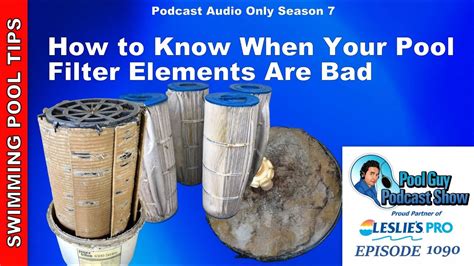Is Your Pool Filter Killing Your Pool? Find Out!
A sparkling, clean pool is the dream of every homeowner. But what if the very system designed to keep your pool pristine is actually harming it? It might sound counterintuitive, but a malfunctioning or improperly maintained pool filter can, in fact, contribute to a variety of pool problems. This article will delve into the ways your pool filter can negatively impact your pool's health and what you can do to prevent it.
How Can a Pool Filter Damage My Pool?
A pool filter's primary job is to remove debris, algae, and other contaminants from your pool water. However, when it's not working correctly, several issues can arise, leading to a decline in water quality and even damage to your pool's structure. Here's how:
-
Inadequate Filtration: A clogged or damaged filter can't effectively remove contaminants. This leads to cloudy water, algae blooms, and an increased need for chemicals, potentially upsetting the delicate chemical balance of your pool. Over time, this can strain the pool's structural components and even damage the finish.
-
Increased Chemical Use: Poor filtration forces you to use more chemicals to maintain a healthy pool environment. This not only increases your costs but also contributes to chemical imbalances, potentially harming pool surfaces and equipment.
-
High Pressure: A clogged filter increases the pressure on your pump, forcing it to work harder. This can lead to premature pump failure, a costly repair.
-
Spread of Contaminants: If your filter is cracked or leaking, it can actually spread contaminants back into the pool, negating its purpose entirely.
What are the Signs My Pool Filter is the Culprit?
Several signs can indicate your filter is causing more harm than good:
-
Cloudy or Green Water: This is a classic sign of inadequate filtration. Even after adding chlorine, the water remains murky.
-
High Pump Pressure: Consistently high pressure readings on your filter gauge signal a clogged filter.
-
Frequent Algae Blooms: Despite regular cleaning and chemical treatments, algae keeps returning, suggesting the filter isn't removing the algae effectively.
-
Damaged Pump: If your pump is struggling to maintain its usual pressure or has recently broken down, a failing filter could be the underlying cause.
How Can I Tell If My Pool Filter Needs Replacing?
While cleaning your filter regularly is crucial, there comes a time when replacement is inevitable. Here's how to tell:
-
Irreparable Damage: Significant cracks or tears in the filter housing or cartridges usually necessitate replacement.
-
Persistent Clogging: If you're constantly cleaning your filter and it still remains clogged, it may have lost its filtering capacity and needs replacing.
-
Age of the Filter: Most pool filters have a lifespan of several years. Check your filter's manufacturer specifications for recommended replacement intervals.
What are Common Pool Filter Problems?
H2: What are the common types of pool filters?
There are three main types of pool filters: sand, cartridge, and diatomaceous earth (DE). Each has its own set of maintenance requirements and potential problems. Sand filters require backwashing, cartridge filters need regular cleaning or replacement, and DE filters necessitate regular cleaning and DE replenishment. Understanding your filter type is essential for proper maintenance and troubleshooting.
H2: How often should I clean my pool filter?
The frequency of cleaning depends on several factors, including the size of your pool, how often you use it, and the type of filter you have. However, as a general rule, you should inspect your filter pressure gauge regularly and backwash (sand filters) or clean (cartridge and DE filters) when the pressure rises significantly above the normal operating pressure.
H2: My pool filter is leaking, what should I do?
A leaking pool filter is a serious problem that should be addressed immediately. Turn off the pump and carefully inspect the filter for cracks or damage. Minor leaks may be repairable, but significant damage usually necessitates filter replacement. Consult a pool professional if you are unsure how to proceed.
Conclusion: Maintaining a Healthy Pool Ecosystem
Your pool filter is a critical component of your pool's ecosystem. Regular maintenance, including thorough cleaning and timely replacement, is crucial for ensuring your pool remains clean, healthy, and enjoyable. Ignoring filter issues can lead to more significant problems down the line, costing you more time, money, and effort. By understanding the signs of a failing filter and taking proactive steps, you can keep your pool sparkling and prevent costly repairs.

